First ever festival to test users' drugs
- Published
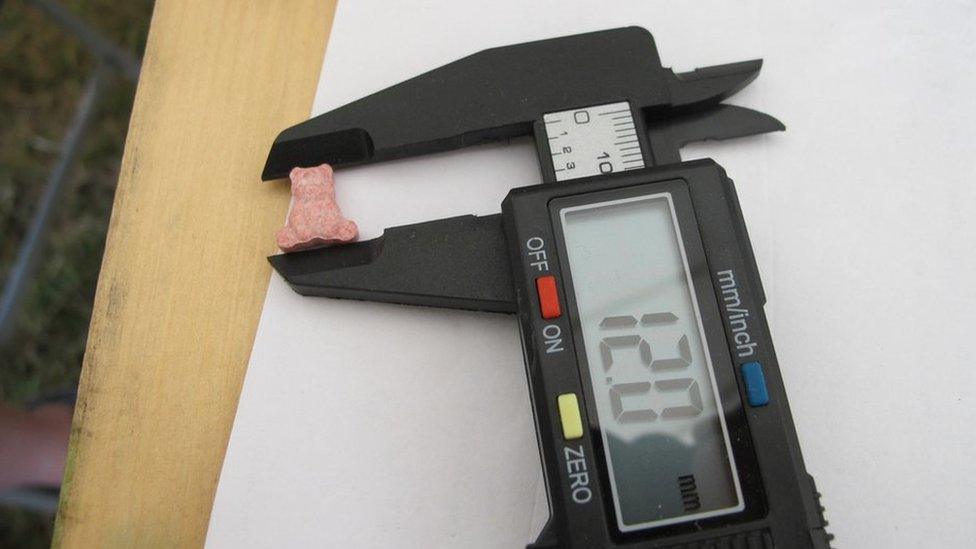
People attending a UK festival have been able to test drugs on site for the "first time ever".
Campaigners say the practice known as "front of house testing" will help users know what they are taking.
Critics have always argued open testing encourages people to take illegal drugs.
But those in favour argue that people will always take drugs and this makes it safer.
Music fans at the Secret Garden Party in Cambridgeshire were able to try the scheme, run by the community interest company The Loop, at the weekend.
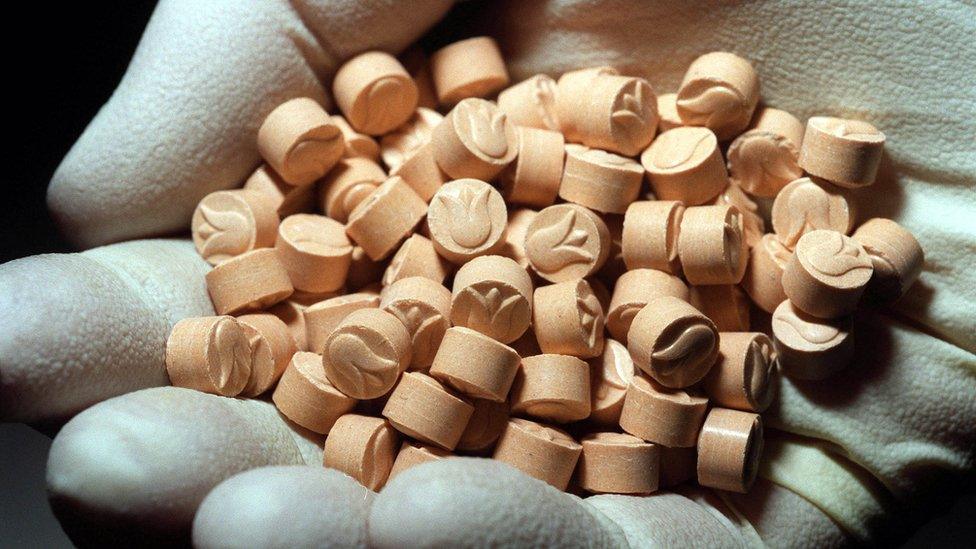
There have been several deaths connected to high strength ecstasy and MDMA in 2016.
It's important to say testing does not remove the risk of having a bad reaction to MDMA or other drugs.
The Loop normally test drugs seized by the police and security at festivals.
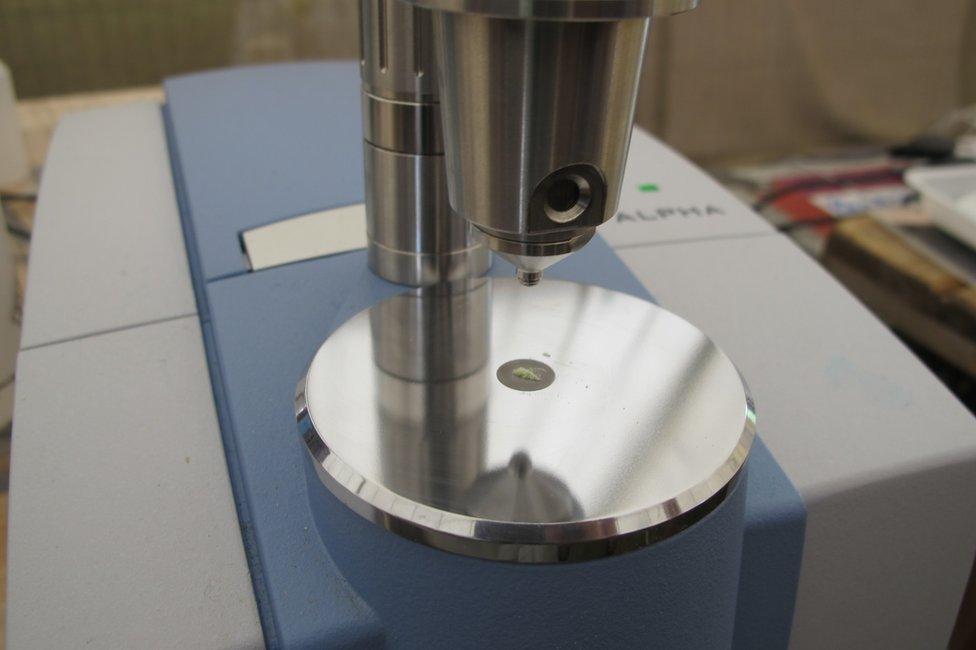
This time was different because festival-goers themselves took their own drugs for analysis.
Whatever they handed over for testing was destroyed afterwards.
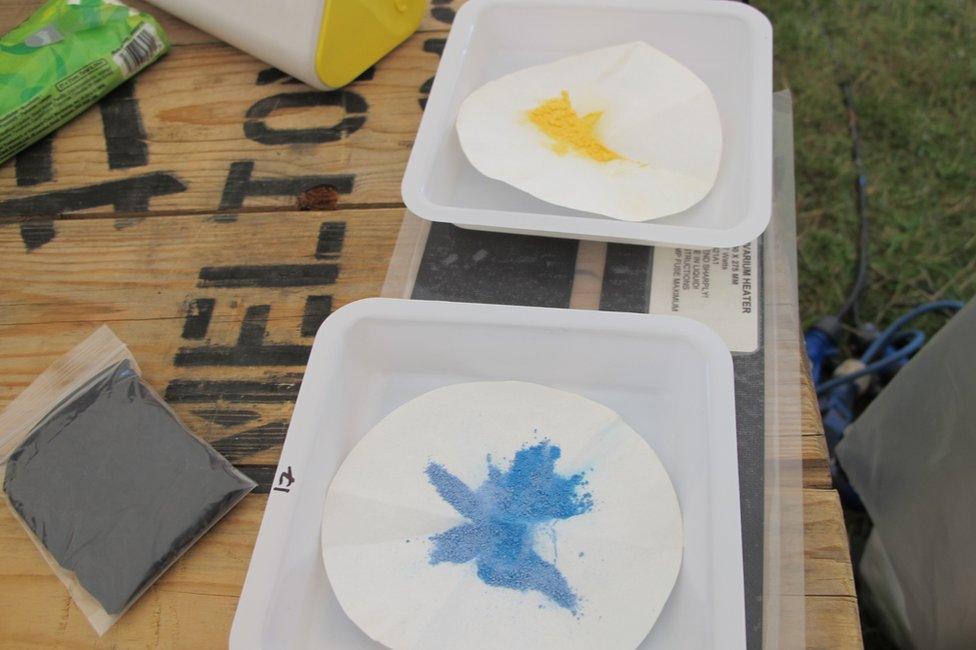
Users were given advice about what exactly was in their sample.
Then they could make an informed decision about whether or not to take any.
The pill Newsbeat saw being tested contained no MDMA, it was made up of caffeine and ephedrine.
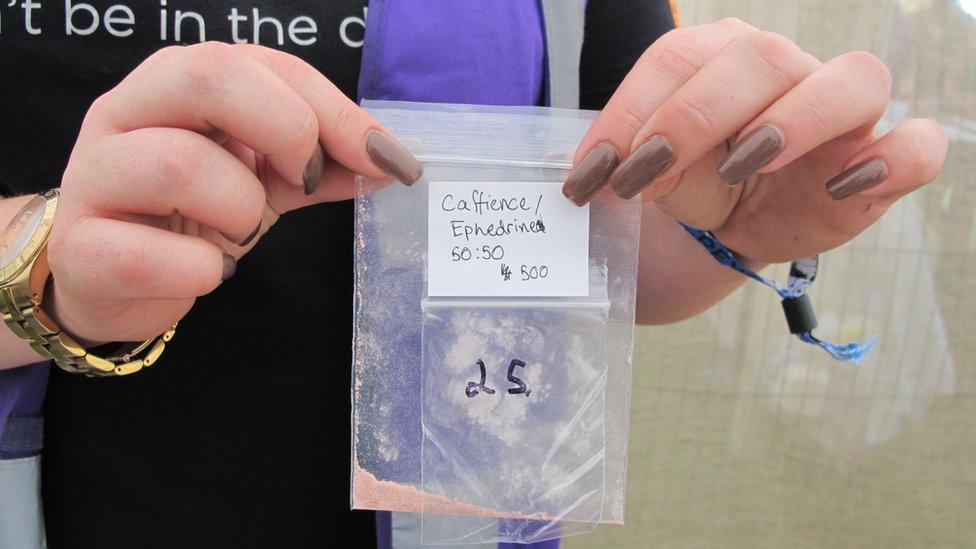
Fiona Measham is a Criminology professor at Durham University and helped set up the charity.
She led the analysis and was pleased with how it went.
She says: "We are collecting samples directly from users and we are giving the information back directly to the users.
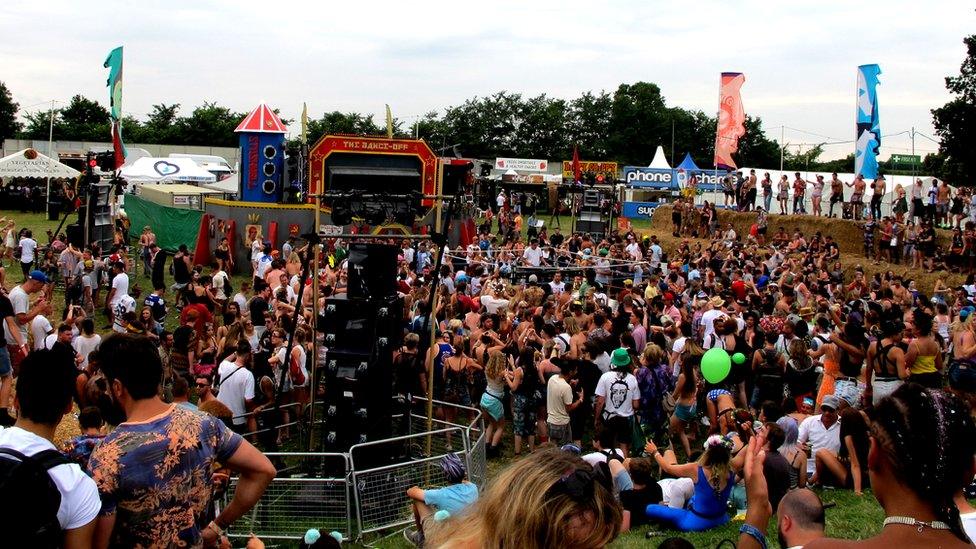
"The overall aim is to reduce overall harm on site and perhaps even to save lives."
Most of the drugs her team tested were ecstasy.
MDMA, or ecstasy, is a Class A drug and the maximum penalty for possession is seven years in prison and an unlimited fine.
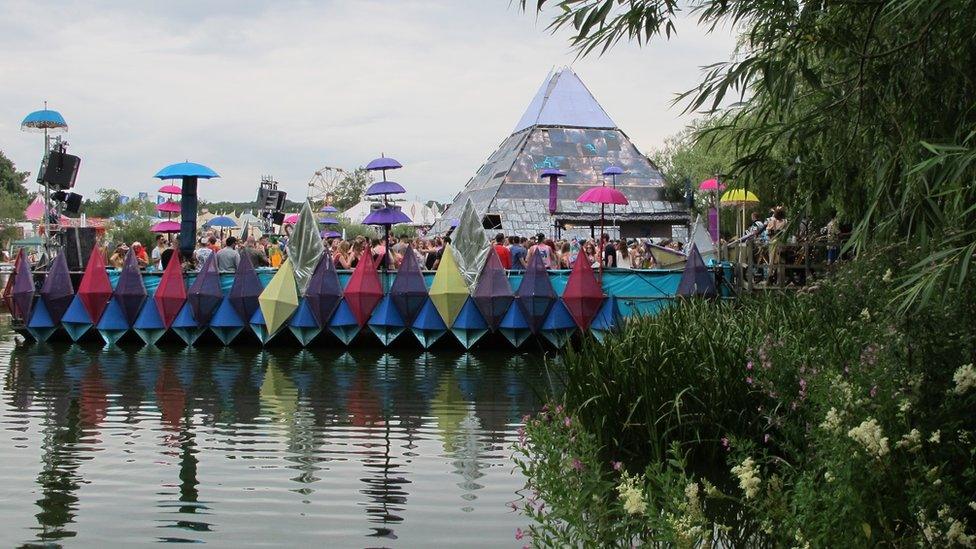
We spoke to two people who tested some of their pills at Secret Garden Party.
Both thought it was a good idea.
They were told the drug they handed in was very strong.
"To bring down and test what you are taking, I think it's a really progressive thing and there should be more of it," one of them told Newsbeat.
The other said: "It's refreshing to know that you're not going to get in trouble and there is no stigma.
"Everybody does it, so let's be honest about it and get some information."
The charity has been working with the festival organisers and the local police.
"Together with the event organisers there are a range of robust measures in place to detect drugs at the Secret Garden Party, including the use of sniffer dogs," Superintendent Laura Hunt from Cambridgeshire Police told Newsbeat.
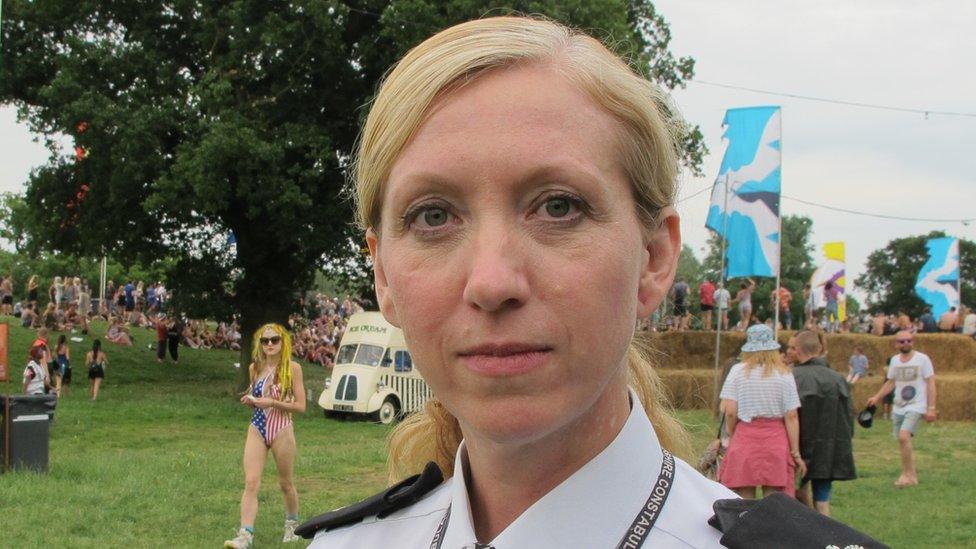
"The safety of people attending the event is our number one priority.
"The work of this charity focuses on harm reduction and provides important drug safety messages to festival-goers."
Radio 1 DJ B. Traits, whose real name is Brianna Price, played the event and has been calling for more drug testing in clubs and festivals.
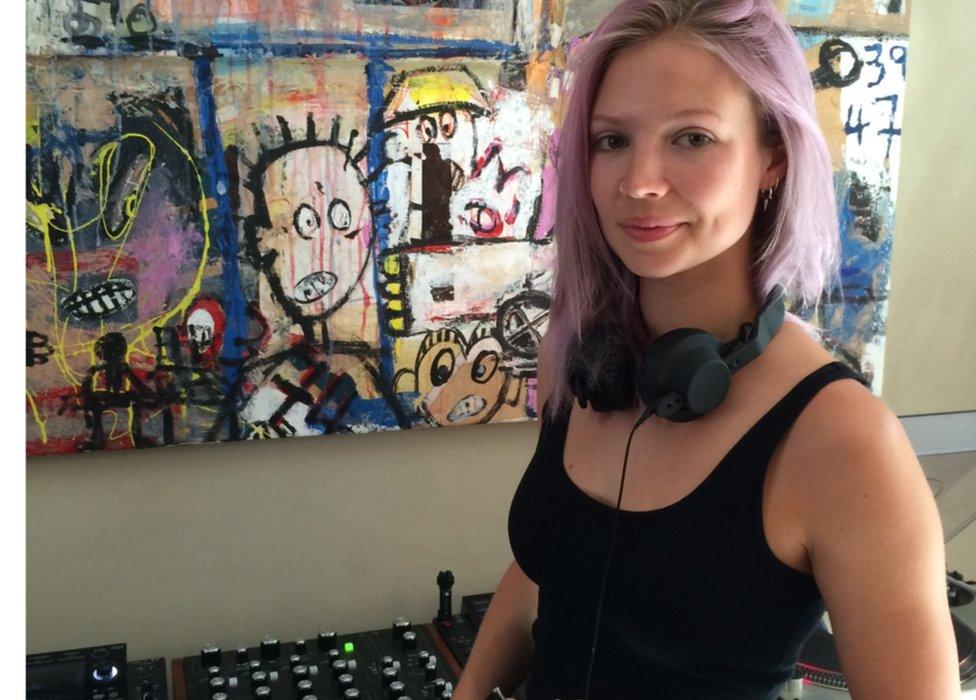
DJ B.Traits
She said: "It's a very, very good thing. It's a big deal and a massive step in the right direction.
"We have to acknowledge that young people are going to constantly experiment with drugs.
"The more we try to brush it to one side, the more it's going to happen and the more bad things are going to happen."
"We want to get young people talking about it more and considering it and if they are going to do drugs, doing it in a safer way.
"No-one knows how you're going to react to it and it's a massive risk that you are going to take."
Critics argue testing legitimises Class A drug use by making it seem safe.
The Loop says testing will help users know how potent their drugs are - and what else they have been been cut with.
Testing like this is common practice in clubs in places like Germany and the Netherlands and campaigners want the same in the UK.
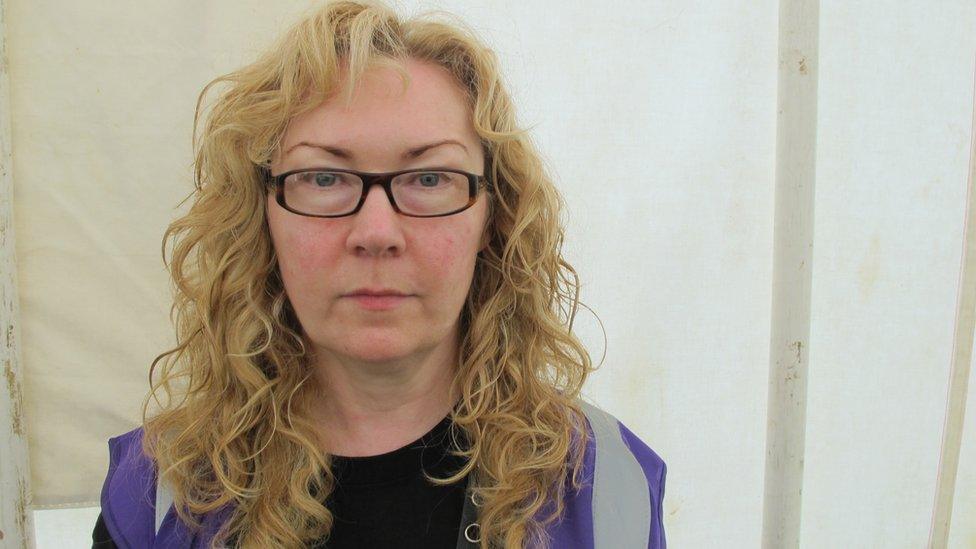
"This is the first festival. We're hoping it will be the first of many," Professor Measham told Newsbeat.
"More than half of people who got drugs tested have told me they are now not going to take what they brought along for testing."
The Home Office says "no drug-taking can be assumed to be safe and our approach remains clear".
"Drugs are illegal where there is scientific and medical evidence that they are harmful to health and society.
"We must prevent drug use in our communities and help dependent individuals to recover, while ensuring our drugs laws are enforced."
There is BBC Advice on ecstasy and MDMA.
Find us on Instagram at BBCNewsbeat, external and follow us on Snapchat, search for bbc_newsbeat